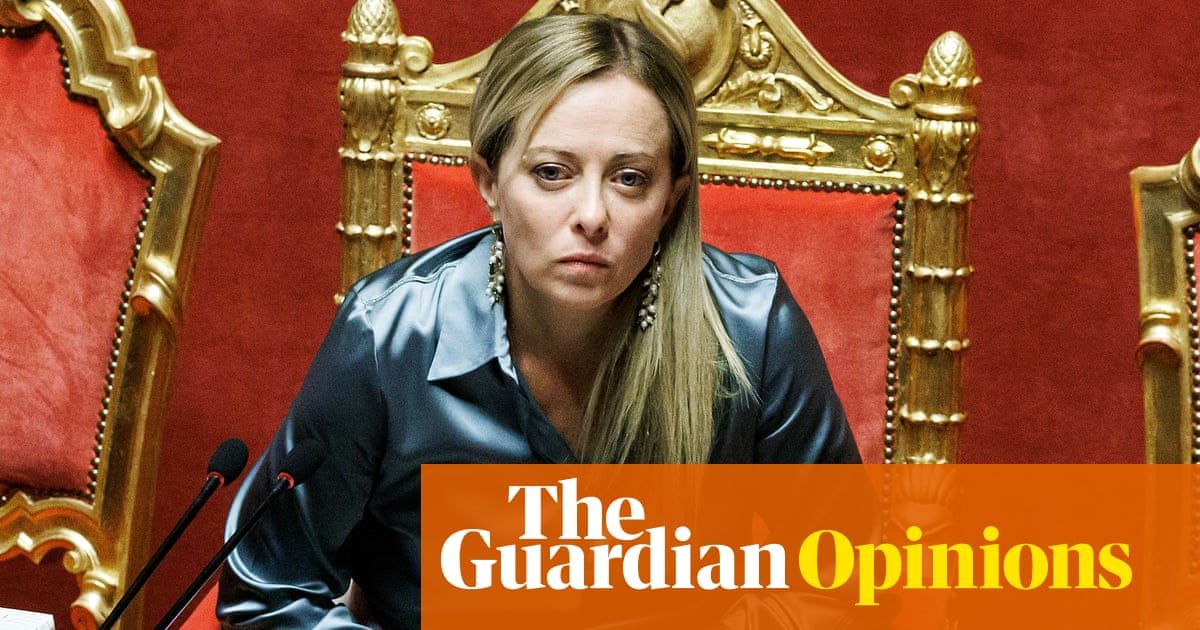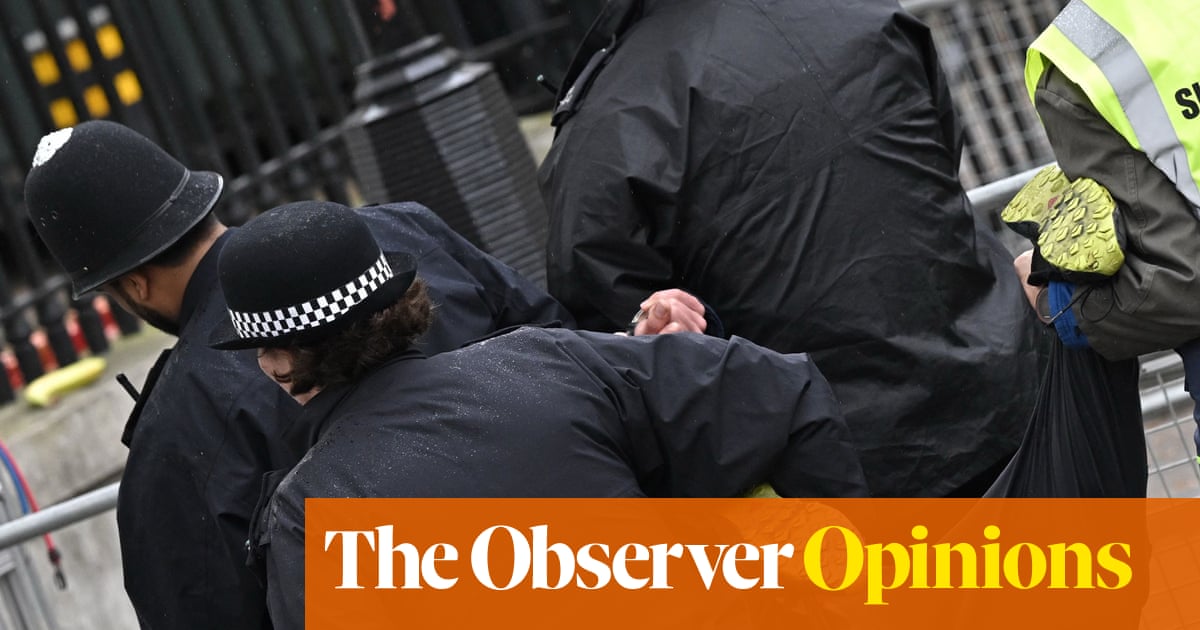
t’s often said that Conservatives and the rightwing press are good at stoking divisions. What’s perhaps less acknowledged is that they do so mostly by inventing them: those who campaign for more inclusive policies become “the woke mob” and “the loony left”; those who want students to learn about the darker parts of Britain’s history become “people who hate Britain”; judges and politicians who want to follow basic parliamentary procedures become “enemies of the people”, “saboteurs”, and “traitors”, and so on.
In every case, we’re told that the future of the nation is at stake. The relentlessness of this “culture war” narrative leaves us with the image of an irreconcilable rift at the heart of British society: between liberals obsessed with identity politics who live, literally or spiritually, in “north London”, and sidelined social conservatives who live – or rather, are “left behind” – everywhere else (most emotively in “the red wall”). These fantasy constructions are now the twin pillars of Conservative rhetoric.
But this image of an irreconcilably divided nation is just that: an image. A spate of polls have shown that we are not as divided as many would have us think. Views in the so-called red wall are largely consistent with the rest of the country and, nationwide, few people know what either the “culture war” or “wokeness” even mean. Yet the right still pushes this narrative relentlessly, railing against a lefty elite that somehow manages to both wield a hegemonic control over Britain’s culture and be hopelessly out of touch with it. The new rightwing television channel, GB News – one of many new ventures to pitch itself as an urgent corrective – will host a segment called Wokewatch, to illuminate and amplify examples of the loony left’s looniness.
As the sociologist William Davies has written, this is the logic of the culture war: “Identify the most absurd or unreasonable example of your opponents’ worldview; exploit your own media platform to amplify it; articulate an alternative in terms that appear calm and reasonable; and then invite people to choose.” Exaggeration is therefore intrinsic to culture wars: it is a battle waged mostly by straw men.
It’s no surprise that Boris Johnson thrives in this environment: a journalist by trade, a liar by nature, he is all too familiar with the energising power of some well-placed hyperbole. As the Daily Telegraph’s Europe correspondent in the 1990s, Johnson wrote all kinds of wild and made-up provocations about the EU’s regulatory overreach: before Wokewatch there was Brusselswatch. The aim of Johnson’s exaggerations wasn’t any particular political agenda, but rather to stoke animosity. “Everything I wrote from Brussels was having this amazing, explosive effect on the Tory party,” Johnson recalled in his Desert Island Discs interview for Radio 4 in 2005, “and it really gave me this rather weird sense of power.” As prime minister Johnson pursues the same approach, but his plaything is now the nation at large.
The cynicism and bad faith that underlies so much of the culture war should warn us against one of the dominant tendencies within the vast and burgeoning literature on our polarised times: to blame evolutionary biology and an inherent “tribalist” instinct we share. “The mechanism is evolutionary,” New York Times writer Ezra Klein writes in his recent bestseller, Why We’re Polarised, because “our brains know we need our groups to survive”. But by conjuring up a primordial past as the source of our divisions, we lose sight of all the contemporary forces and strategies that are deliberately designed to inflame and exaggerate our differences. The climate crisis wasn’t destined to be such a divisive issue, for instance – it required, in the words of climatologist Michael Mann, “the most well-funded, well-organised PR campaign in the history of human civilisation”. The Flintstones might not have agreed on everything either, but at least they didn’t have Fox News.
The culture war is in this sense the ultimate fiction: what seems like a battle for the soul of our country is a pantomime where we are conscripted to play both gladiator and spectator and obliged to pick a side. The hope seems to be that, amid all the sparring and theatre, we lose sight of what truly frustrates us: in Britain, that is an increasingly harsh economy, imposed by a callous government, which has left us with the worst wage growth in 200 years, public services that are chronically underfunded and a third of children living in poverty – a misery offset by one of the stingiest welfare systems in the developed world. If society now feels coarser, it’s because it is – but the reason is not a sudden decline in civility.
Yet while the Conservatives, in power for over a decade, are the main architects of this dreary, resentful state of the nation, they are also its main beneficiaries. The Conservatives have always excelled at stoking resentment and redirecting it elsewhere; now is no different: they are clear favourites to win the next election, a record fifth in a row.
So even amid this total and unsettling ascendancy, the Tories will still insist that the blame for Britain’s woes lies elsewhere: with Londoners hoarding all the nation’s wealth, with university professors teaching “cultural Marxism” in their classes, or asylum seekers trying to cross the Channel, or any other phantom threat they can think of. This strategy goes beyond the usual “divide and conquer”. It was said of the Romans and their imperial dominance that they “make a desert and call it peace”. The Tories are trying a different tactic: make a desert and call it war.
Samuel Earle is a writer based in London












